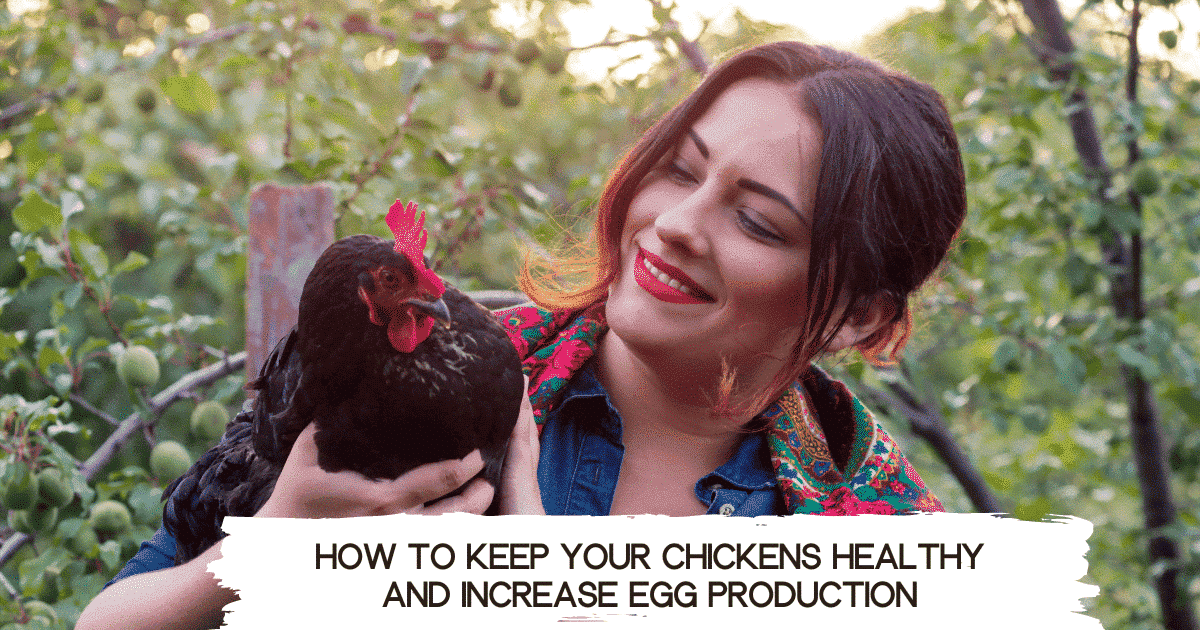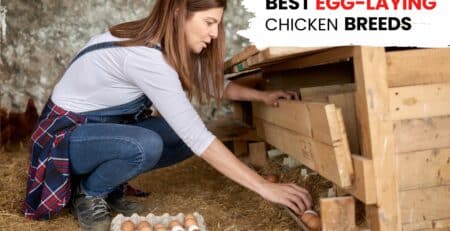As a backyard chicken owner, you must have asked yourself: Why have some of my chickens stopped laying eggs? Unfortunately, there are no straightforward answers, as you probably already found out. However, you can list causes and effects, look at some common prevention factors, and have excellent healthy chickens and edible eggs with little effort. Always keep in mind that healthy and happy chickens lay more eggs.
Common reasons for declining egg production include reduced day length, improper nutrition, disease, advancing age, and stress. By following these recommendations, you can increase egg production.
Cleanliness is your best friend!
There are a few things you can do to keep your flock clean. First, you can clean your coop daily or when needed. For some breeders, this is a straightforward task that is as routine as brushing your teeth. You can also use some other inventive methods. A trending solution for breeders who breed chickens for eggs is the deep litter method. The deep litter method means that your chickens inside and outside the coop have a deep layer of bedding (several inches thick). Standard bedding that you can use is a layer of wood shavings. To properly maintain and compost the bedding, you must add wood shavings each time the chicken litter is visible and has a slight odor. Over time, your layer of bedding will accumulate. 2-3 times a year, the bedding is then wholly or partially removed and composted in the garden or buried in the yard. The key here is adding the material that provides cleanliness, dryness, and odor removal. In the end, you get compostable matter that can be used in various ways. The decomposition process releases heat and is a natural insulator, which helps to keep your flock warm during colder seasons.
To further keep your chickens healthy and your breeding efficient and carefree, keep the coop dry by securing the waterer from tipping over, be it outside or inside the coop. Also, regularly clean the feeders and waterers to maintain good health so that harmful bacteria and viruses cannot breed.
Be aware of diseases
Be aware that you, as an owner, can also transport diseases into your flock. You can accidentally bring germs to your chickens either on your clothes or shoes or in the bodies of other infected birds you got in your flock and didn’t know they were carrying diseases. Only purchase small chickens from well-known hatcheries that also vaccinate chicks for common diseases. If you keep yourself clean, you will keep the flock healthy. Breeding chickens for eggs is a neat endeavor, so clean your shoes and clothes regularly. If you have visitors who cannot stay away from your endearing chicken friends, ask them about their previous whereabouts and if they were in contact with other flocks or have been somewhere where they had many birds. To not spread disease, they have to clean their shoes and change into different clothes if they have visible stains.
Free-range time for your chickens is crucial for their mental and physical health. Chickens have a natural need to use their claws, so they scratch and dig the land. They also like to bathe in the dust, so providing them with a dust pile that is dry and pest-free is a must. When you have your chickens out and about, do watch out for predators.
You can use Run-Chicken automatic coop door for extra safety. If your chickens are crowded in the coop, consider buying or making a bigger one with insulation that prevents moisture and cold from getting in. Regulating the temperature further stimulates the health of your chickens. Stress is also reduced by keeping the coop warm in the winter and cool in the summer.
Good food and good company
Be careful what chickens eat. Focus on non-processed foods and scraps. If needed, give chickens supplements found in some chicken feeds. You can also give them dried bugs and worms if they do not discover them during winter or extreme drought seasons. Be especially careful when breeding chickens for eggs to avoid giving them spoiled or rotten food. Interaction with birds is also essential, so go and kindly approach your flock daily to get used to you as a keeper. It is also beneficial that your flock is also used to other people taking care of them if sometimes you go on holiday or have an emergency and cannot be there.
By providing your chickens with the best care you can, you will most likely provide yourself with healthy eggs and pets that spark joy in your everyday life.
While your flock is sleeping you can take a quiz and find out 20 fun facts about chickens that may surprise you. We wish you a comfortable and worry-free chicken raising experience!






